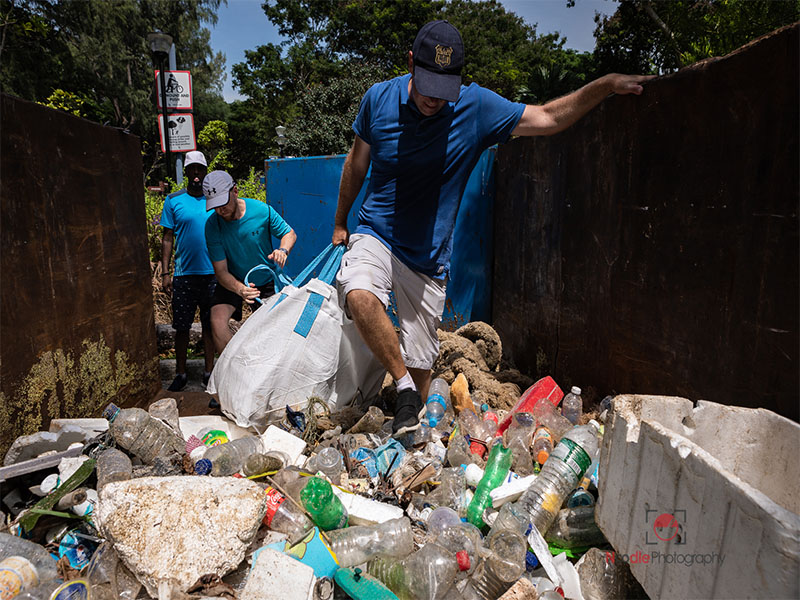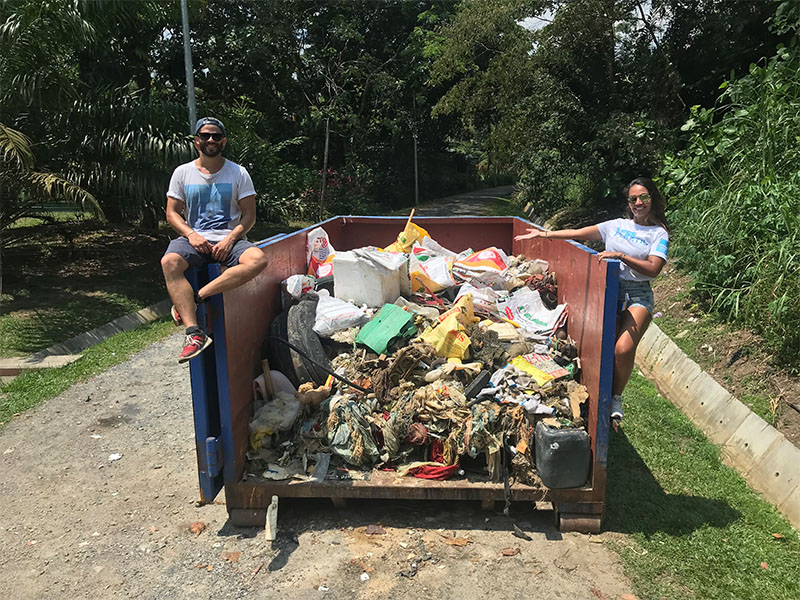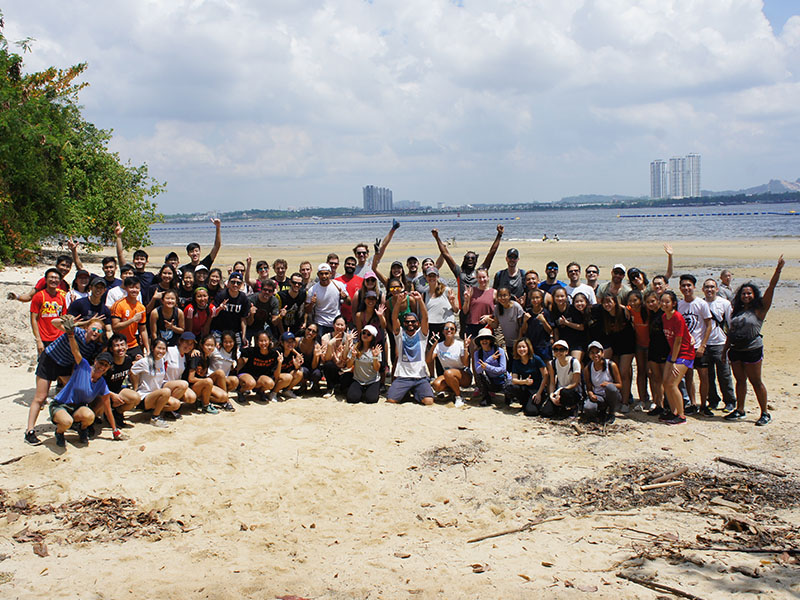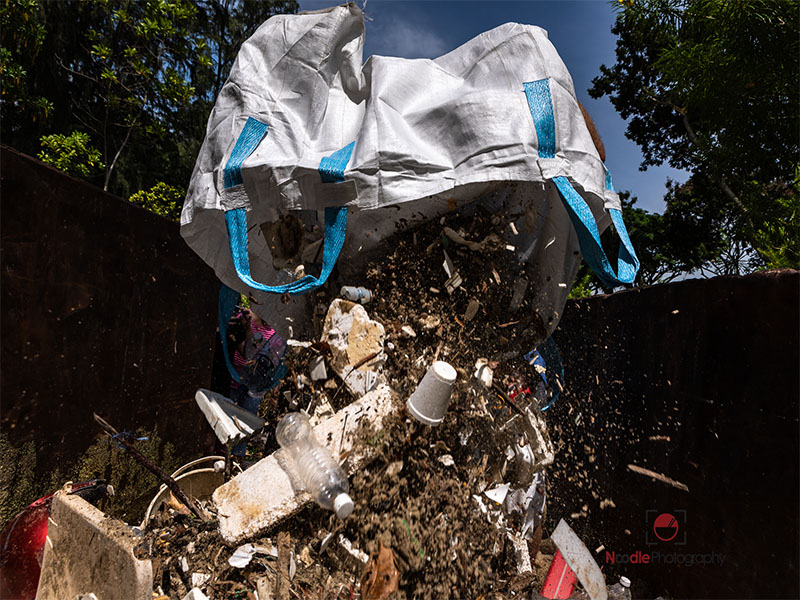When 30-year-old Brit TOM PEACOCK-NAZIL and his fiancée were vacationing on an island in Thailand, they found a pristine, beautiful, white-sand beach. They loved it so much, they returned the next day, only to find it covered in plastic. That experience kicked off Tom’s passion, Seven Clean Seas. Are you interesting in volunteering?
What is Seven Clean Seas? Why did you start it?
After that experience on our vacation, the two of us started to clean our local beach at the start of East Coast Park. In June 2018, we decided we wanted to scale up our clean-ups and really start increasing the amount of plastic pollution we were removing from our coasts, particularly the non-tourist beaches. That’s the moment Seven Clean Seas was born.

Southeast Asia is the heart of the ocean plastic problem, but Singapore is different, right?
In a word, no. On a “bad” day, you may not be able to walk on some of the beaches we clean due to the amount of plastic. Compared to our neighbours, Singapore doesn’t even register on the scale for contributing towards the ocean plastic pollution issue; as a result, there seems to be a common misconception that we are somehow immune from it.
Really? How can there be such a problem here?
Singapore is known as one of the cleanest cities in the world. The world’s worsts even contributors to ocean plastic pollution are China, Indonesia, Philippines, Vietnam, Thailand, Sri Lanka and Malaysia. The amount these countries contribute to the issue is terrifying, and they literally surround Singapore. All the plastic entering the oceans in these locations sets sail and floats around the world. Given our proximity, a lot of this washes on to our beaches. We are well and truly in the firing line.
I’ve been to beach clean-ups before and didn’t find much trash. Does it accumulate in certain spots?
If you want to see a really dirty beach in Singapore, you have to get off the beaten track. The government here does a fantastic job cleaning the tourist beaches every day, but the non-tourist beaches don’t get the same attention.
How much of a difference can a beach clean-up make when the problem is so big?
Beach clean-ups are a source of invaluable education for those taking part, their friends, families and networks. It’s about helping people understand the scale of the issue by experiencing it first hand and making them want to change their plastic consumption and consumerism habits. This is the lesson that Seven Clean Seas would like to “export” from Singapore to our neighbours to try and stem the flow at the source.
How can somebody get involved?
It’s super easy. Just sign up to one of our clean-ups via Facebook (fb.com/sevencleanseas). If you follow us, you’ll be able to keep up to date with all our activities. It’s all about spreading the message.
Is this the kind of thing a family can do together?
How about a school or Scout group? Absolutely, we have loads of regular families attend with young children. They love it and it’s so rewarding to hear stories of the kids refusing to use Styrofoam or straws after clean-ups. We believe informing the next generation is the most important thing we can do.
What’s the one thing people can do to keep the problem from getting worse?
Refuse plastic wherever possible. Make sure you have reusable alternatives on you. It’s that simple.
What’s next for Seven Clean Seas?
We’ve achieved a lot in a relatively short amount of time, but we really want to take it to the next level and expand into the worst offending countries in Southeast Asia. That’s where we need to be if we’re really going to have a positive effect on the issue. To fund this, we’re selling an eco-friendly bracelet made from biodegradable cotton and eco-friendly stainless steel. For each one we sell, we promise to remove 0.5kg of ocean plastic pollution. We’re also working with some businesses who are interested to incorporate our activities into their corporate social responsibility models.
Since June 2018, Seven Clean Seas has held a beach clean-up every month, removing more than 25,000kg of plastic!
Did you know? The world’s worst seven contributors to ocean plastic pollution are China, Indonesia, the Philippines, Vietnam, Thailand, Sri Lanka and Malaysia.
Learn more at www.sevencleanseas.com.
For more helpful tips head to our Living in Singapore section.
10 quirky places to take out-of-town visitors
Must-try local desserts in Singapore
This article first appeared in the September 2019 edition of Expat Living. You can purchase a copy or subscribe so you never miss an issue!
Don't miss out on the latest events, news and
competitions by signing up to our newsletter!
By signing up, you'll receive our weekly newsletter and offers which you can update or unsubscribe to anytime.






